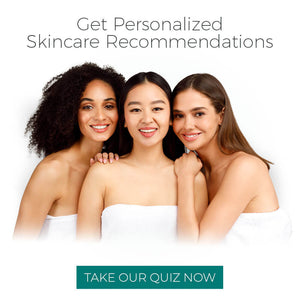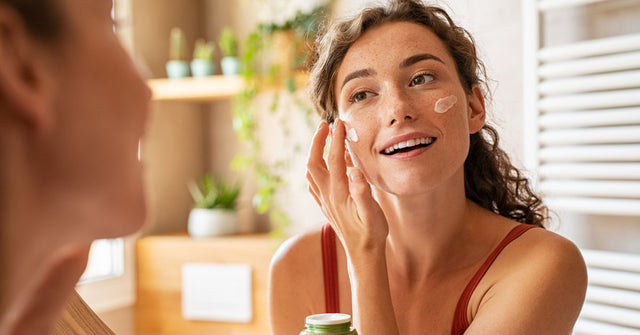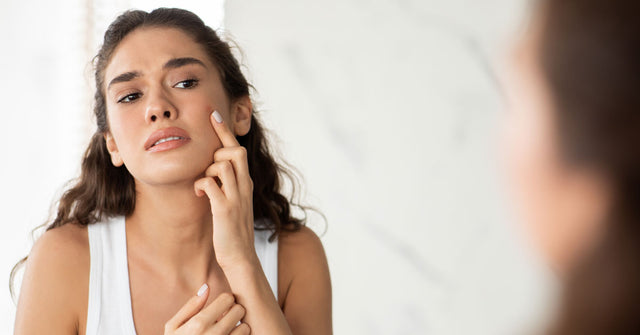Lip hyperpigmentation is a condition characterized by darkening of the lips due to excessive melanin production of the skin cells. The lips appear darker than their natural shade and may show uneven or patchy pigmentation. While mainly harmless, it can severely affect one’s self-esteem and confidence, prompting individuals to seek preventive measures and suitable treatments.
Introduction
Lip hyperpigmentation, also called "darkening of the lips," is a common condition that affects people of various ages, genders, and ethnicities. This is characterized by excessive production of melanin, the pigment responsible for skin and hair color, in the skin cells of the lips. As a result, the lips appear darker than their natural shade, causing distress and self-consciousness for those experiencing it.
While lip hyperpigmentation is generally harmless from a medical standpoint, its impact on someone's self-esteem and overall well-being can be significant. Additionally, discoloration of lips may be associated with underlying health issues or lifestyle factors that require attention.
What is Lip Hyperpigmentation?
Lip hyperpigmentation [1] is a condition that darkens the lips due to excessive production of melanin, the pigment responsible for skin color. This common issue can affect individuals of all ages, genders, and ethnicities which leads to feelings of low confidence and self-esteem. While typically benign medically, discoloration of the lips and skin can indicate underlying health issues or lifestyle factors that may need to be addressed. Managing and preventing this condition involves adopting a suitable skincare routine and, in some cases, seeking medical advice or treatments to restore the natural appearance of the lips which will help to promote a positive self-image.
What is the importance of understanding Lip Hyperpigmentation?
It is crucial to understand lip hyperpigmentation as it will help individuals recognize the causes and risk factors contributing to the condition. With this knowledge, people can take proactive steps to prevent or manage darkened lips which will promote better self-esteem and confidence. Additionally, understanding lip hyperpigmentation can help in differentiating harmless cases from those potentially linked to underlying health issues, prompting timely medical attention if and when necessary. By being educated on this skin condition, individuals can make informed decisions about suitable treatments, home remedies, or lifestyle adjustments to address lip hyperpigmentation effectively.
What are the common causes of Lip Hyperpigmentation?
There are various reasons as to why your lips may turn black [2].
- Prolonged sun exposure and UV damage lead to melanocytes (melanin cells) overproducing melanin leading to darker pigments of the lips.
- Hormonal changes and imbalances, which are commonly experienced during pregnancy or with prolonged use of birth control pills, can trigger darkening of the skin and lips.
- Smoking and tobacco use can stain the lips and cause pigmentation issues.
- Certain medications such as cancer therapy drugs, antifungals, antibiotics (i.e., tetracyclines), and even NSAIDs (i.e., ibuprofen) can cause lip hyperpigmentation. In addition, medical conditions relating to the thyroid (Cushing's and hypothyroidism), endocrine and metabolic issues, and some types of cancer can also contribute to lip-darkening.
- Genetics and ethnicity play a role, as individuals with darker skin tones are more prone to lip hyperpigmentation.
What are the symptoms and identification of Lip Hyperpigmentation?
Although there are no symptoms experienced with lip hyperpigmentation, there are physical indicators that can reveal if you do have this condition.
- Darkening of lip color. This is the most apparent sign of lip hyperpigmentation and will lead to noticeably darker lips. Lips may appear darker than their natural shade, often in patches or unevenly.
- Patchy or uneven pigmentation. Lip hyperpigmentation can manifest as irregular patches or areas of darker color on the lips, contributing to an uneven appearance.
- Other symptoms or signs. Typically, other signs may include inflammation or sensitivity of the lips. Dryness and flakiness may be experienced as well.
Consulting a dermatologist or healthcare professional for a proper evaluation is important in order to differentiate lip hyperpigmentation from other lip conditions like chapped lips, lip eczema, or lip infections as these all have the same symptoms.
How can you differentiate between Lip Hyperpigmentation and other lip conditions?
Lip hyperpigmentation primarily manifests as a dark lip color which often appears patchy or uneven. However, identifying this condition involves considering other accompanying symptoms or signs, such as dryness, flakiness, or inflammation of the lips. It's crucial to differentiate lip hyperpigmentation from other lip conditions like chapped lips, eczema, infections, or other underlying factors such as vitamin deficiencies, which may have similar visual appearances but require various treatments. The best thing to do would be to consult with a dermatologist or other healthcare professional who will be able to accurately diagnose [3] and appropriately manage the condition.
What are the risk factors of Lip Hyperpigmentation?
Lip hyperpigmentation can be influenced by different risk factors that can increase an individual's likelihood of experiencing this condition. Skin tone and ethnicity play a significant role because those with darker skin tones are more prone to lip hyperpigmentation due to higher melanin production in their skin. Gender can also be a factor, as hormonal fluctuations in women during pregnancy or with the use of certain hormonal medications (i.e., birth control pills) may contribute to the darkening of the lips.
Age is another risk factor, as the accumulation of sun exposure and UV damage over time can lead to increased pigmentation. People who are exposed excessively to the sun without protection, such as sunscreen or lip balm with SPF, are at a higher risk of developing lip hyperpigmentation. Lifestyle factors, like smoking, tobacco use, and drinking coffee and tea, can stain the lips and worsen pigmentation issues.
Maintaining a balanced and healthy lifestyle, along with proper skin care practices, can reduce the risk and severity of lip hyperpigmentation in susceptible individuals.
How to reduce Lip Hyperpigmentation?
Reducing lip hyperpigmentation involves a combination of preventive measures and treatments [4].
- Sun Protection: Using sun-blocking agents which contain SPF is important to prevent discoloration of the skin and lips. One way you can incorporate a skin protectant is by applying Sundefend Lip Balm SPF 15 before going out in the sun to shield your lips from harmful UV rays. Reapply lip balm every two hours, especially during prolonged sun exposure. The SPF 15 in the lip balm forms a protective barrier, preventing excessive melanin production triggered by sun exposure, which is a significant cause of lip hyperpigmentation.
- Hydration: Hydration is essential for maintaining healthy lips. Typically, when dehydrated, lips will become chapped and you might lick your lips with your tongue which will further dry the lips out. Therefore, drinking more water, especially if exposed to the sun, will help to prevent discoloration of the lips.
- Avoid Smoking: If you are a smoker, quitting or reducing tobacco use can help reduce lip staining and improve lip health as prolonged smoking can cause hyperpigmentation in the long run.
- Gentle Exfoliation: Regular but gentle exfoliation of the lips can help remove dead skin cells and promote even pigmentation. However, avoid excessive exfoliation, as it may irritate the lips and worsen hyperpigmentation.
- Topical Treatments: In addition to Sundefend Lip Balm, consider using topical treatments that contain ingredients like niacinamide, vitamin C, turmeric, or aloe vera, which can help lighten darkened lips and even out the pigmentation over time. Consult a dermatologist to determine the best-suited treatment for your specific condition, especially if needing medical therapy.
- Healthy Diet: Maintain a balanced diet rich in antioxidants, vitamins, and minerals to support overall skin health, including your lips. Foods like fruits, vegetables, and fish, which contain omega-3 fatty acids [5], can contribute to healthier skin, protect skin against sun damage, and aid in reducing lip hyperpigmentation overall.
Frequently asked questions
Is lip hyperpigmentation reversible?
The ability to reverse lip hyperpigmentation depends on the underlying cause and the extent of the hyperpigmentation. In many cases, lip hyperpigmentation is reversible, especially when it is caused by factors like sun exposure, smoking, or certain medications. By addressing these contributing factors and adopting preventive measures such as using SPF lip balms, avoiding tobacco use, and protecting the lips from UV rays, there can be a significant improvement in lip pigmentation over time.
However, in some cases, lip hyperpigmentation may be more challenging to reverse if it is genetically determined or if associated with certain medical conditions. In these situations, specialized treatments like topical creams, laser therapies, or chemical peels may be prescribed by dermatologists to lighten the darkened lips.
How long does hyperpigmentation last on lips?
The duration of hyperpigmentation on the lips can vary depending on its underlying cause and the effectiveness of treatment. In some cases, such as hyperpigmentation caused by minor injuries or irritations, the darkening may fade away within a few weeks to a few months as the skin heals. However, if lip hyperpigmentation is caused by more persistent factors like sun damage, hormonal changes, or genetics, it may take longer to achieve improvement. In such cases, it can last for several months or even years without proper management.
Consistent use of sun protection, regular lip exfoliation, and the application of topical treatments that contain ingredients like vitamin C or niacinamide can help expedite the fading process. It is essential to consult a healthcare professional for a proper evaluation and personalized treatment plan to address lip hyperpigmentation effectively.
Is lip hyperpigmentation normal?
Lip hyperpigmentation is relatively normal and common. It affects people of all ages, genders, and ethnic backgrounds. While there is no exact prevalence, many individuals experience some degree of lip-darkening during their lifetime. The lips, like the rest of the skin, can undergo changes in pigmentation due to various factors.
While lip hyperpigmentation is harmless from a medical standpoint, it can impact an individual's self-esteem and confidence. Fortunately, there are various preventive measures and treatments available to manage and reduce lip hyperpigmentation, allowing individuals to maintain healthier and more even-toned lips.
Conclusion
Lip hyperpigmentation is a very common condition characterized by the darkening of the lips due to excess melanin production. While it is harmless, it can significantly decrease an individual's self-esteem and confidence. Understanding both the causes, risk factors, and symptoms of lip hyperpigmentation is crucial in adopting preventive measures and appropriate treatments against it.
Preventing sun damage, avoiding tobacco use, and maintaining a healthy lifestyle are essential in minimizing the risk of lip hyperpigmentation. Regular use of sun-protective lip balms, coupled with topical treatments and professional interventions, can lead to noticeable improvements in lip pigmentation.
Although complete reversal may not always be possible, early intervention and consistent care can help individuals regain a more natural and even lip color. Embracing the uniqueness of our lips and seeking professional guidance when needed can foster a positive self-image and appreciation for our natural beauty, promoting a sense of confidence and well-being in our daily lives.
References
1] ↑https://urbanskinrx.com/blogs/expert-advice/dark-lips-is-hyperpigmentation-the-cause
2] ↑https://www.cyspera.com/what-is-hyperpigmentation/lips-hyperpigmentation/
3] ↑https://www.verywellhealth.com/dark-spot-on-lip-5225113
4] ↑https://www.medicalnewstoday.com/articles/lip-discoloration#hemochromatosis
5] ↑https://www.healthline.com/nutrition/omega-3-benefits-on-skin-and-hair#1.-May-protect-against-sun-damage






